Cancer Cell:ID1和ID3调节结肠癌起始细胞自我更新
2012-06-18 bo 生物谷
6月12日,Cancer Cell杂志报道了结肠癌肿瘤起始细胞自我更新性调节机制的最新进展。 越来越多的证据表明,某些肿瘤内部是分等级,分层次组织起来的。其中,有一群称为肿瘤起始细胞(C-ICs)的相对稀有细胞起着维持整个肿瘤群落的作用。虽然,已知在连续的移植情况下仍可形成新的肿瘤是C-ICs的一个重要特征,但这个过程的控制基因却一直不明。 本研究发现,DNA结合抑制子1(ID1)和DNA结合
6月12日,Cancer Cell杂志报道了结肠癌肿瘤起始细胞自我更新性调节机制的最新进展。
越来越多的证据表明,某些肿瘤内部是分等级,分层次组织起来的。其中,有一群称为肿瘤起始细胞(C-ICs)的相对稀有细胞起着维持整个肿瘤群落的作用。虽然,已知在连续的移植情况下仍可形成新的肿瘤是C-ICs的一个重要特征,但这个过程的控制基因却一直不明。
本研究发现,DNA结合抑制子1(ID1)和DNA结合抑制子3(ID3)基因共同作用,通过细胞周期抑制子p21限制细胞周期,来控制结肠癌C-ICs的自我更新。通过ID1和ID3调节p21是防止过度DNA损伤积累和继之的结肠癌C-ICs功能性耗尽的核心机制。
此外,ID1和ID3沉默可增加结肠癌C-ICs对化学治疗试剂奥沙利铂的敏感性。这提示,肿瘤起始功能是与化疗抗性相联系的。

doi:10.1016/j.cell.2011.10.017
PMC:
PMID:
ID1 and ID3 Regulate the Self-Renewal Capacity of Human Colon Cancer-Initiating Cells through p21
Catherine A. O'Brien, Antonija Kreso, Paul Ryan, Karin G. Hermans, Lianne Gibson, Yadong Wang, et al
There is increasing evidence that some cancers are hierarchically organized, sustained by a relatively rare population of cancer-initiating cells (C-ICs). Although the capacity to initiate tumors upon serial transplantation is a hallmark of all C-ICs, little is known about the genes that control this process. Here, we establish that ID1 and ID3 function together to govern colon cancer-initiating cell (CC-IC) self-renewal through cell-cycle restriction driven by the cell-cycle inhibitor p21. Regulation of p21 by ID1 and ID3 is a central mechanism preventing the accumulation of excess DNA damage and subsequent functional exhaustion of CC-ICs. Additionally, silencing of ID1 and ID3 increases sensitivity of CC-ICs to the chemotherapeutic agent oxaliplatin, linking tumor initiation function with chemotherapy resistance.
本网站所有内容来源注明为“梅斯医学”或“MedSci原创”的文字、图片和音视频资料,版权均属于梅斯医学所有。非经授权,任何媒体、网站或个人不得转载,授权转载时须注明来源为“梅斯医学”。其它来源的文章系转载文章,或“梅斯号”自媒体发布的文章,仅系出于传递更多信息之目的,本站仅负责审核内容合规,其内容不代表本站立场,本站不负责内容的准确性和版权。如果存在侵权、或不希望被转载的媒体或个人可与我们联系,我们将立即进行删除处理。
在此留言





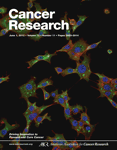
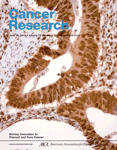
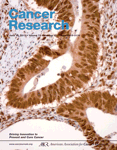
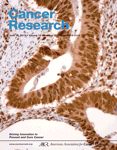
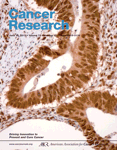




#CEL#
67
#Cell#
64
#cancer cell#
64
#自我更新#
64
#细胞自我更新#
66
#ID3#
60